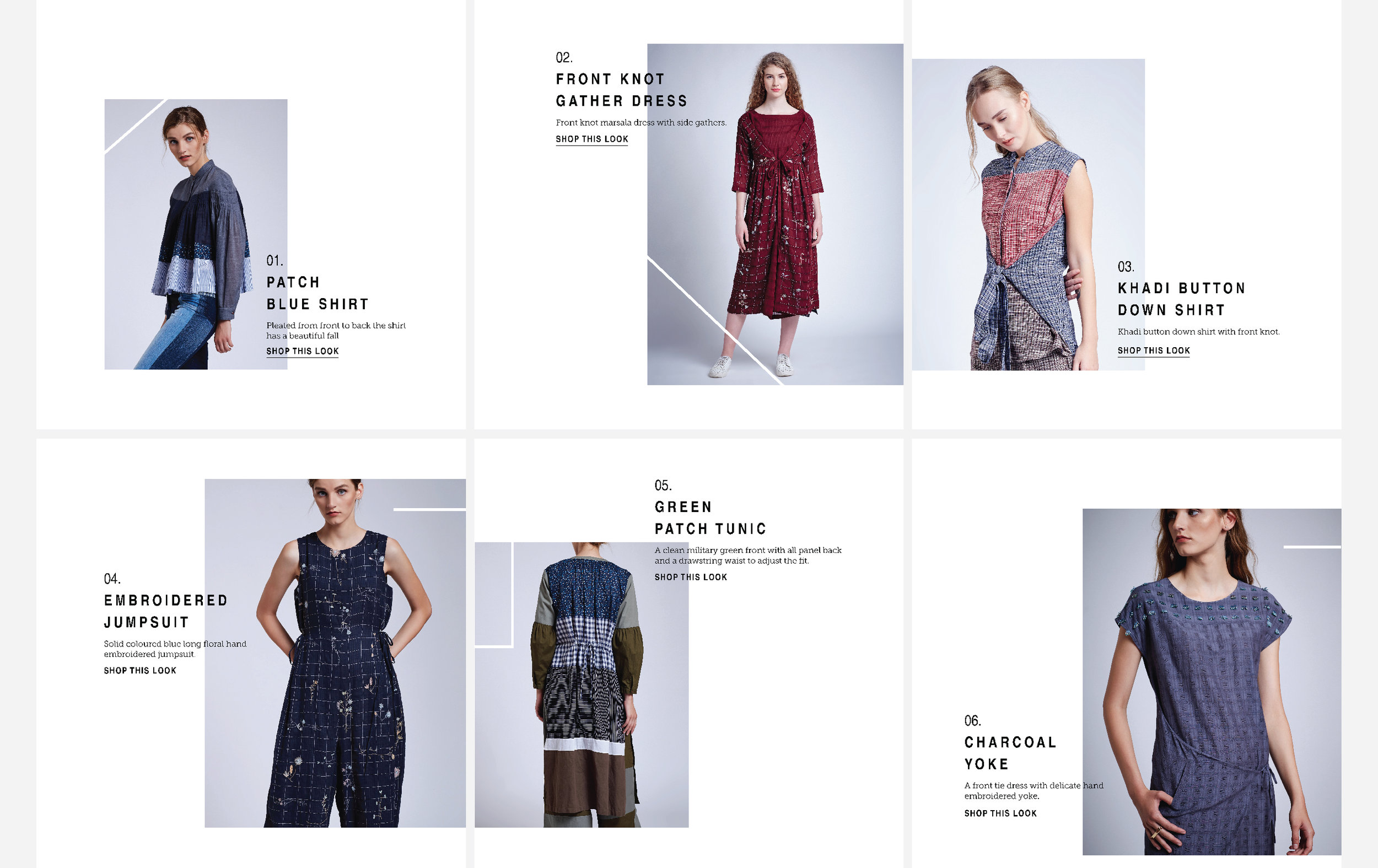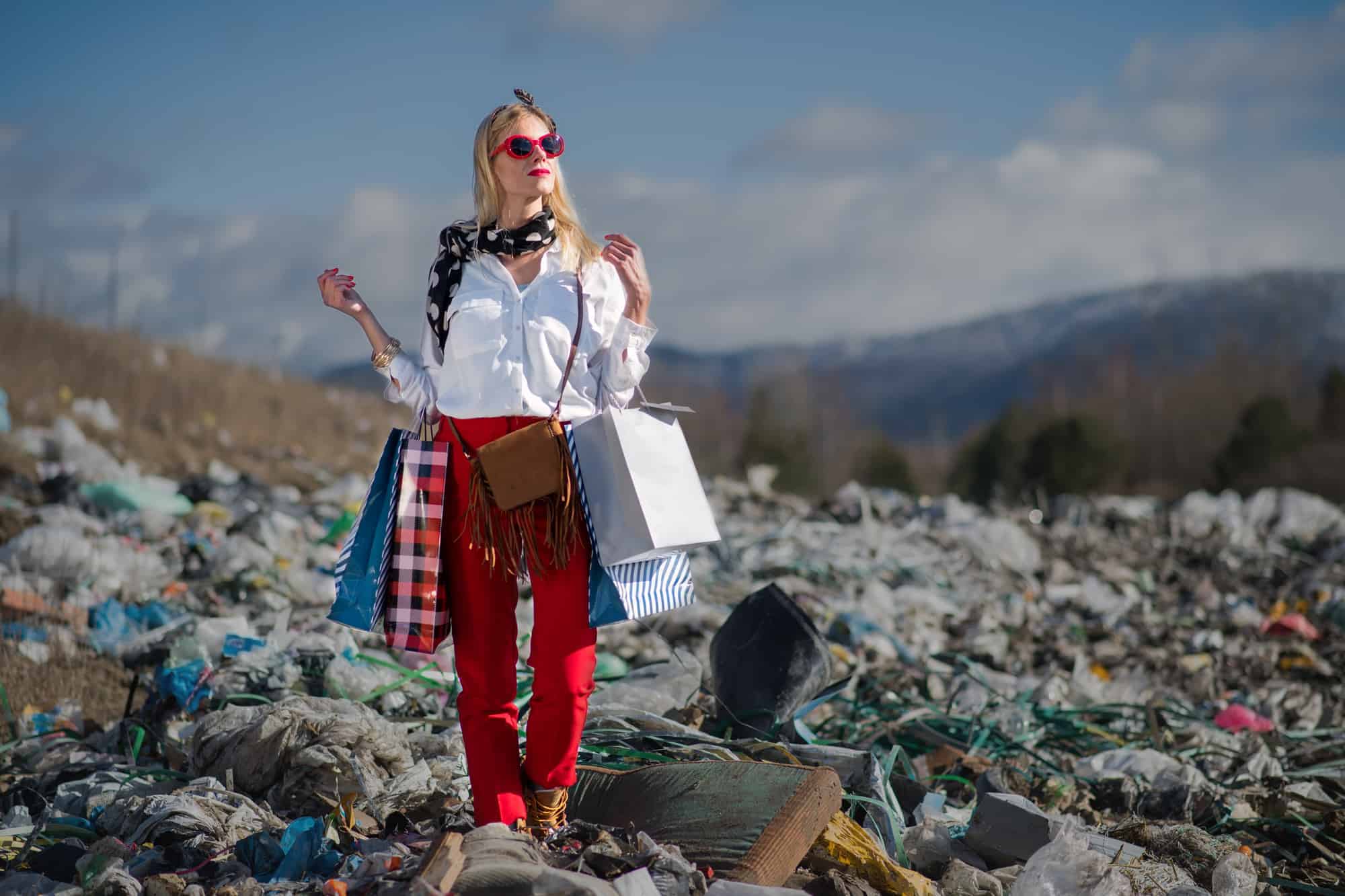
Doodlage, a well-known brand in the Indian fashion industry, has partnered with Lyfecycle, another environmentally conscious brand, to tackle the issue of plastic pollution in the fashion industry.
The initiative aims to address the staggering statistics related to plastic usage in fashion packaging, particularly polybags.
According to Fashion for Good’s report, an estimated 180 billion polybags are produced annually, and a significant portion of them end up in the environment and eventually make their way into the oceans. Shockingly, less than 15% of all polybags in circulation are collected for recycling. This alarming situation has motivated Doodlage and Lyfecycle to collaborate and develop innovative, self-destructing packaging to combat the microplastic pandemic and protect the oceans.

Doodlage has gained recognition in the Indian fashion landscape for its commitment to upcycling factory waste and creating limited-edition collections. They have been at the forefront of sustainable practices and conscious consumption by leveraging technology and eco-sensitive materials. By joining forces with Lyfecycle, another disruptive brand with a focus on environmental impact, Doodlage aims to further drive positive change in the industry.
The partnership between Doodlage and Lyfecycle highlights the importance of collaboration and innovation in addressing the environmental challenges posed by the fashion industry. By developing self-destructing packaging, the brands hope to minimize the accumulation of plastic waste and prevent its harmful effects on the oceans. This initiative serves as an example of how fashion brands can proactively contribute to reducing plastic pollution and fostering a more sustainable future.
Lyfecycle, developed by British innovators Polymateria, introduces a technology that provides solutions for recycling and addresses the plastic waste that escapes the circular economy and ends up in the natural environment. This technology offers an alternative option, a “Plan B,” for the 32% of plastic that doesn’t enter the recycling system. In line with their campaign Generation O (representing oceans), the brands aim to raise awareness about the impact of plastic packaging in the fashion industry and empower consumers to make more sustainable choices.
According to Liepa Olsauskaite, Head of Marketing at Lyfecycle, the collaboration between Doodlage and Lyfecycle began in October 2022. Recognizing the importance of educating their audience about the hidden costs of packaging in fashion, they sought to provide a platform for individuals to take action. Both brands share the belief that no action is too small and that everyone, regardless of their background, age, political views, or fashion preferences, has a role to play in addressing plastic pollution.

The collaboration between Doodlage and Lyfecycle demonstrates their commitment to engaging consumers in sustainable practices and raising awareness about the environmental impacts of the fashion industry. By encouraging consumers to ask “who made my clothes” and promoting more sustainable choices, the brands aim to foster a collective effort in solving the problem of plastic pollution. Their message is that every individual has the power to contribute to positive change, regardless of their personal circumstances or preferences.
Doodlage’s partnership with Lyfecycle has led to a significant transformation in their packaging approach. By incorporating self-destructing technology into their fashion garment bags, Doodlage has redefined their packaging to be more sustainable and environmentally friendly. These bags are recyclable, and if they happen to escape into the environment, they will undergo a transformation into an earth-friendly wax that safely decomposes, leaving no microplastics or toxins behind. This innovative solution provides two end-of-life scenarios, encouraging responsible disposal and promoting a circular fashion ecosystem.

The development of this groundbreaking technology began in 2016 when the Lyfecycle team started working on it at Imperial College London Innovation Hub Labs. It required the efforts of over a dozen scientists, conducting more than 100,000 experiments and conducting 300,000 tests to successfully crack the code and achieve a technological breakthrough. The process involved immense dedication, passion, and determination. According to Liepa Olsauskaite, a significant amount of hard work went into building a solution that genuinely works and fulfills its promises.
Following the technological breakthrough, Lyfecycle focused on developing partnerships with manufacturers capable of scaling up the technology. They also sought to collaborate with disruptive brands willing to integrate this solution into their packaging strategies. The initial focus was on countries facing significant plastic leakage issues, and subsequently, they expanded their reach to other regions across the world. This approach allowed them to target areas with the highest plastic pollution concerns and make a meaningful impact on a global scale.

The collaboration between Doodlage and Lyfecycle showcases their dedication to finding innovative solutions to combat plastic pollution in the fashion industry. By integrating cutting-edge technology into their packaging, they aim to set an example for other brands and contribute to the global efforts in reducing plastic waste and creating a more sustainable future.
The collaboration between Doodlage and Lyfecycle represents the introduction of self-destructing technology in India for the first time. The teams from both brands worked closely together for over four months to develop impactful bag designs, identify suitable production partners, and co-create the Generation O campaign aimed at raising awareness. The campaign provides various avenues for individuals to take action, including waste reduction events, projects, and informative content.
The premise of Generation O, as highlighted by Kriti Tula, is that we are the first generation with the technology and means to combat ocean plastic pollution and create a cleaner and brighter future for the next generation. While the self-destructing technology is a significant step towards addressing the issue, Tula emphasizes that consumers can also take smaller steps to reduce their environmental footprint.

She suggests opting for sustainable materials like organic cotton, recycled polyester, or upcycled fabrics, as they have a lower environmental impact compared to conventional materials. Additionally, she encourages repurposing damaged clothing instead of discarding it. Choosing to support brands that prioritize ethical and sustainable practices is also crucial. Consumers can look for certifications or labels that indicate a brand’s commitment to fair labor practices, environmental responsibility, and transparency.
By advocating for conscious material choices, promoting clothing repurposing, and supporting brands with sustainable practices, consumers can contribute to reducing their environmental impact and driving positive change in the fashion industry.
Overall, the collaboration between Doodlage and Lyfecycle aims to inspire individuals to make sustainable choices and take steps towards a more responsible and environmentally conscious fashion ecosystem.





